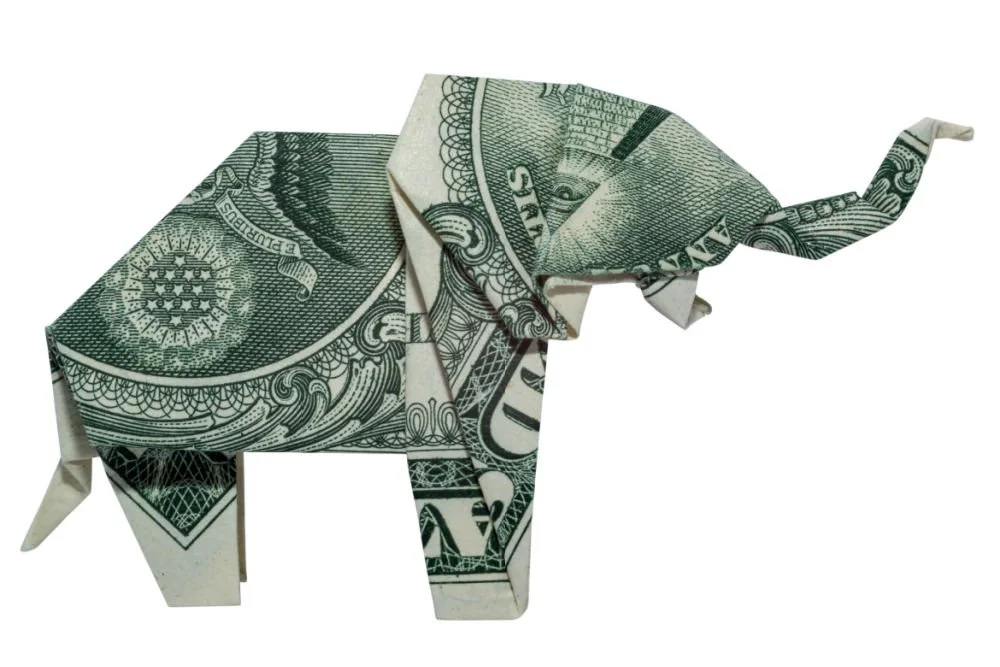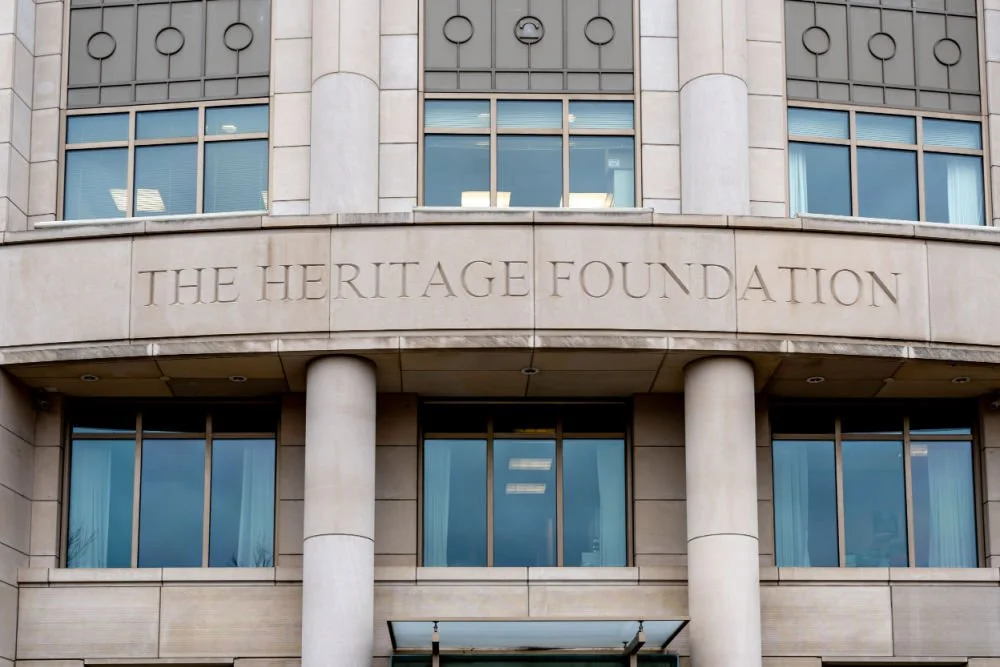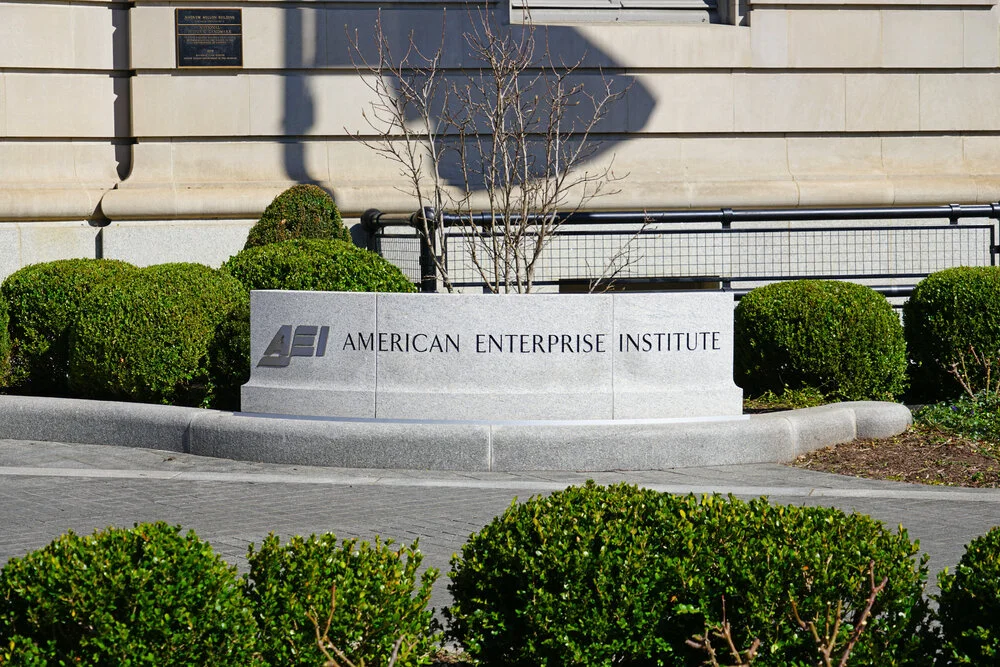Extremist: What the Right's Most Influential Philanthropist Really Thinks
/There is no admissions test to join the ranks of top philanthropists. Anyone with enough money can start giving on a large scale and more of the super-wealthy have been stepping forward to do exactly that.
Cheerleaders for philanthropy tend to see the sector’s porousness as a strength. The low barrier to entry means that all sorts of people put support behind all sorts of passions and ideas, contributing to the wondrous diversity of American civil society.
But there’s also a downside to this open door: Donors with fringe viewpoints—yet deep pockets—can get a serious hearing in the public square and do real damage to the fabric of society.
Not long ago, we wrote about William Regnery II, the heir of a conservative publishing fortune, who single-handedly bankrolled a new infrastructure of white supremacist groups.
But Regnery’s giving has been small change compared to the philanthropy of the hedge fund executive Robert Mercer, who has lately been the most influential mega-donor on the right—and who, according to a new lawsuit, seems to hold some views similar to Regnery's. (More about that suit in a moment.)
Mercer and his daughter Rebekah have gotten a lot of attention for the critical role they’ve played in helping elect Donald Trump and also underwriting Steve Bannon’s activities. But we wrote in IP about the Mercers well before the election, looking at grantmaking by their family foundation to a wide range of conservative and libertarian groups.
Related: Meet the New Best Friend of Conservative Policy Groups: Robert Mercer
Much of this giving is standard fare for donors on the right, with funds flowing to organizations at both the national and state levels. Robert Mercer can be understood as a part of a new wave of conservative philanthropists who’ve carried on the work begun in the 1970s by Richard Scaife, the Koch brothers and other donors to build and sustain a robust infrastructure for advancing right-wing ideas in American life. Many of these ideas, such as lower taxes and deregulation, provide direct economic benefits to the wealthy donor class—although, as I’ve written in my book The Givers, ideology seems to be a bigger motivator than the bottom line for top givers on the right.
Whatever the case, you could say that this is just how pluralism works; people advocate for their own interests or views in the public square, with voters and their representatives making the final call on which policies prevail. On the other hand, the degree to which the wealthy can buy bigger bullhorns to push an agenda is troubling, and there’s now a mountain of evidence that this muscle distorts public policy outcomes.
Philanthropy has been part of this unhappy story. Since the 1970s, charitable giving—adroitly deployed by savvy ideologues on the right—has played a key role in shaping policies on taxes, regulation and entitlements in ways that favor the far upper class.
If Robert Mercer’s giving were only the latest example of that familiar story, he wouldn’t be all that interesting. But Mercer’s philanthropy also underscores the way that charitable giving can be used to finance hardball politics and to legitimize views that are extremist, even in the eyes of many conservatives.
Among other things, the Mercer family have been main patrons of the Government Accountability Institute, a 501(c)(3) organization that engaged in an unrelenting attack on Hillary Clinton and the Clinton Foundation in the lead-up to the 2016 election. Those attacks helped drive up Clinton’s disapproval ratings, along with the powerful attacks by Judicial Watch, another 501(c)(3) focused on Clinton’s use of a personal email account while Secretary of State.
Related: Meet the Tax-Exempt Nonprofit Behind the "Corrupt Hillary" Narrative—And Its Funders
Plenty of other fire was also directed at Clinton in the election and she made lots of mistakes on her own. But it’s fair to say that some of the most effective efforts to sow distrust about her among voters and the media were financed by tax-deductible charitable giving. The Mercers may have been the single biggest donors in this regard, with gifts to the Government Accountability Institute totaling at least several million dollars.
It was money well spent. By election day, Hillary Clinton’s unfavorable ratings were comparable to Donald Trump’s and she lost the election by a tiny margin.
Related: 7 Tips for Using Tax-Exempt “Charitable” Gifts to Get Your Candidates Elected
Robert Mercer isn’t the first philanthropist who has used his giving to finance pointed political attacks. In the early 1990s, Richard Scaife’s foundation bankrolled an effort to dig up dirt on Bill Clinton’s sex life—financing investigative reporting by the American Spectator that led to “Trooper-gate,” the Paula Jones lawsuit, and eventually, Clinton’s impeachment. That scandal helped cost Al Gore the 2000 election, paving the way for a conservative president who sought to implement many of the ideas that Richard Scaife had championed for decades.
Progressive donors have paid attention to these successes, and since the election, a lot of philanthropic gifts have begun flowing to dig up dirt on Donald Trump. It remains to be seen whether this, too, will be money well spent.
Related: Fire with Fire: Donor Dollars and the Coming Attack on Trump's Presidency
It’s no secret that personal attacks can succeed in shaping electoral and policy outcomes. What less well-known is that philanthropy has come to play a growing role in financing such “politics by other means.”
Like many of today’s most savvy mega-donors on the right and left, Robert Mercer engages in both philanthropic and political giving—an increasingly common dual-track approach to achieving influence with wealth. Mercer has also used investments, pumping $11 million into Breitbart.com in 2011 —financing that helped it grow into the main voice for white nationalism. No publication has done more to legitimize the kind of xenophobic and race-baiting viewpoints that Trump embraced to fuel his rise.
Given the close ties between the Mercer family and Steve Bannon, recent revelations about Robert Mercer’s views on race should not be all that surprising. In a wrongful termination lawsuit filed recently, David Magerman, a computer scientist who worked at Renaissance Technologies, the hedge fund where Mercer is co-CEO, recounted conversations with Mercer before the 2016 election. When talk turned to race, Mercer expressed the view that African Americans were doing fine in the late 1950s and early 1960s before the Civil Rights Act, a law that he believes led the country in wrong direction. According to the suit, he said the “only racist people remaining in the United States are black and that white people have no racial animus toward African Americans anymore, and if there is any, is it not something that the government should be concerned with.”
In a long article on Mercer in the New Yorker earlier this year, Jane Mayer described other views that Mercer holds that place him well to the right of most Republicans, as well as his embrace of fringe scientific ideas.
In a large country like the United States, there will always be extremist outliers. Our tradition of free speech rightly ensures that even these individuals can be heard in public debates. What’s different now is that the explosion of earnings at the very top of the income ladder since the 1980s has created an unprecedented number of rich people in the U.S.—some of whom are outliers who hold views well outside the mainstream.
In the normal give and take of public discourse, you might expect such individuals to find themselves marginalized by a disapproving majority of the public. But given all the ways that money can now buy influence and access, it’s possible to get a very different result: Wealthy extremists can end up at the very center of the national conversation, shaping public life—and public policy—in ways that affect us all.
There’s no better example of that today than Robert Mercer.
Related:






































